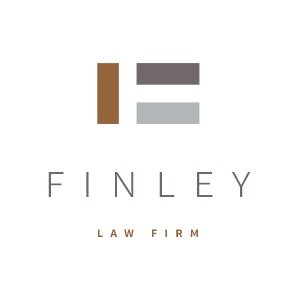Best Ethics and Professional Responsibility Lawyers in Des Moines
Share your needs with us, get contacted by law firms.
Free. Takes 2 min.
List of the best lawyers in Des Moines, United States
About Ethics and Professional Responsibility Law in Des Moines, United States
Ethics and Professional Responsibility law in Des Moines, United States, primarily focuses on the standards and guidelines governing professionals and their conduct within various fields, such as law, medicine, and business. The legal framework is designed to ensure that professionals adhere to ethical principles, avoid conflicts of interest, and maintain the integrity of their respective professions. In Des Moines, these laws ensure the accountability of professionals, which is critical to maintaining public trust in professional services offered in the region.
Why You May Need a Lawyer
Individuals and businesses may require legal assistance in Ethics and Professional Responsibility for several reasons. Common situations include facing allegations of professional misconduct, needing advice on compliance with ethical standards, dealing with conflict of interest issues, or responding to disciplinary actions from professional boards. Lawyers specializing in this area can help interpret regulations, represent clients in hearings, and provide guidance on maintaining adherence to professional codes of conduct.
Local Laws Overview
Des Moines is subject to both state and local regulations concerning ethics and professional responsibility, including provisions established by the Iowa Supreme Court and local professional associations. These laws specify the ethical obligations of professionals, such as confidentiality, fairness, and transparency. Professionals are required to meet continuing education requirements and adhere to the guidelines set forth by the relevant licensing boards. Compliance with these standards is crucial to avoid sanctions and maintain licensure.
Frequently Asked Questions
What is the role of the Iowa Supreme Court in legal ethics?
The Iowa Supreme Court oversees professional conduct rules for attorneys in Iowa, providing guidelines on ethical behavior and implementing disciplinary actions for violations.
What are common ethical issues faced by professionals in Des Moines?
Common issues include client confidentiality breaches, conflicts of interest, and lack of informed consent among professionals in fields such as medicine and law.
How can a professional verify they are complying with ethical guidelines?
Professionals should regularly review the guidelines from their licensing boards, seek continuing education, and, if necessary, consult with a lawyer specializing in ethics and professional responsibility.
What should I do if I face an ethical complaint?
It's crucial to consult with a lawyer immediately to understand the nature of the complaint, prepare a defense, and possibly negotiate resolutions with the professional board.
Can ethics and professional responsibility laws affect my business?
Yes, businesses must ensure compliance with ethical standards across their operations to avoid legal issues and maintain credibility with clients and stakeholders.
How does one file a complaint about professional misconduct in Des Moines?
Complaints can be filed with the relevant professional board or regulatory body in Iowa, often requiring a written statement detailing the misconduct.
What are the potential consequences of ethical violations?
Consequences can include fines, suspension or revocation of licenses, mandatory remedial education, or even criminal charges depending on the severity of the violation.
Are there specific ethics training requirements for professionals in Des Moines?
Yes, many professions have mandatory ethics training requirements that must be completed periodically to maintain licensure and ensure ongoing ethical compliance.
Can ethical guidelines differ between professions?
Yes, each professional field has its own set of ethical standards that consider the unique challenges and responsibilities inherent in the profession.
What resources are available for understanding professional responsibility laws?
The Iowa State Bar Association and other professional organizations often host workshops and provide materials dedicated to educating professionals on ethics and ongoing legal responsibilities.
Additional Resources
For further assistance and information, individuals can refer to the Iowa State Bar Association, which offers resources and guides related to legal ethics. The Iowa Professional Licensing Bureau is another valuable resource, providing access to licensing standards, complaint procedures, and updates on regulatory changes. Additionally, various non-profit organizations and legal aid societies may offer pro bono assistance or advice on ethics-related legal issues.
Next Steps
If you require legal assistance with any matter related to Ethics and Professional Responsibility in Des Moines, it is advisable to consult with an attorney specializing in this field. Begin by researching potential law firms or individual attorneys, considering factors such as experience, reputation, and client reviews. Schedule an initial consultation to discuss your specific circumstances and determine how best to proceed, ensuring that you comply with all relevant legal and professional obligations.
Lawzana helps you find the best lawyers and law firms in Des Moines through a curated and pre-screened list of qualified legal professionals. Our platform offers rankings and detailed profiles of attorneys and law firms, allowing you to compare based on practice areas, including Ethics and Professional Responsibility, experience, and client feedback.
Each profile includes a description of the firm's areas of practice, client reviews, team members and partners, year of establishment, spoken languages, office locations, contact information, social media presence, and any published articles or resources. Most firms on our platform speak English and are experienced in both local and international legal matters.
Get a quote from top-rated law firms in Des Moines, United States — quickly, securely, and without unnecessary hassle.
Disclaimer:
The information provided on this page is for general informational purposes only and does not constitute legal advice. While we strive to ensure the accuracy and relevance of the content, legal information may change over time, and interpretations of the law can vary. You should always consult with a qualified legal professional for advice specific to your situation.
We disclaim all liability for actions taken or not taken based on the content of this page. If you believe any information is incorrect or outdated, please contact us, and we will review and update it where appropriate.









